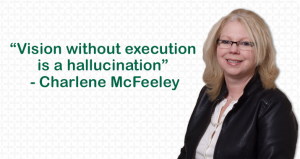Work experience is an important part of your application for a graduate education. It says something about the path you’ve taken since your undergraduate program and what you’ve learned in that time.
This is particularly true in fields as complex and impactful as health informatics and healthcare analytics.
But what if you haven’t been working in healthcare? What if you’ve only just finished your undergraduate degree? Or what if you’ve only been in the field a short time, but want to position yourself for a high level in the future?
Don’t worry – a graduate education is by no means unavailable to you. There are, however, some additional items you’ll want to add to your professional repertoire to help an admissions committee look beyond your lack of experience. While these won’t guarantee you success, they’ll go a long way toward improving your chances for acceptance.
Volunteering and Shadowing
To gain experience in a healthcare setting, volunteer opportunities offer real-life experience and help set your expectations for how things work in the industry. Beyond the experience gained, however, volunteering reflects well on your character. It shows a commitment to the work and a desire to help the broader community.
Additionally, it’s an opportunity to network with people that work in healthcare settings. This may prove useful when looking for references or advice about entering the world of health IT. In some cases, your connection with the company or people working in a particular setting could lead to opportunities to find a job.
Shadowing someone in health IT could prove particularly useful when it comes time to craft your personal statement. Of great interest to any academic institution is what you hope to achieve through the education you will receive. Shadowing opportunities can allow you to speak about what you learned and observed while in that position and provide a more educated viewpoint about how the degree or certificate you seek will help you achieve your professional goals.
Continuing Education Courses
Another way to show a commitment to your professional development is through the attainment of industry certificates and continuing education credit. There are a number of professional organizations that offer industry certification for those looking to get into health IT as well as those who already work in the field.
Two examples are certificates offered by the American Health Information Management Association (AHIMA) and those from Health Information Management Systems Society (HIMSS). The CAHIMS certificate offered by HIMSS is targeted specifically at emerging professionals in health IT and requires little more than a high school diploma to sit for.
For its part, AHIMA offers a number of certificates for those with health IT experience, but the Certified Health Technology Specialist (CHTS) certificate is more tailored to the professional looking to break into health IT, including those needing to familiarize themselves with healthcare workflows, hardware and software, vendors and staff training.
Start with a Graduate Certificate
The Graduate Certificate in Health Informatics and the SAS Approved Graduate Certificate in Healthcare Analytics have been designed to give students a working knowledge of these disciplines, with credits that can be applied to a master’s degree later.
The Graduate Certificate is a great way to show that you are serious about pursuing a future in health IT and that you are ready for the rigorous coursework of a master’s degree. Students transitioning from IT careers outside of healthcare and those whose qualifications may prove to be a challenge for admittance into a master’s degree program should consider the Graduate Certificate route.
Herlende Saint-Phard, a graduate of the MS in Health Informatics program who transitioned to health IT from a career in finance, looks back and says she would have taken the Graduate Certificate course first if she’d known what she knows now.
“It gives you an entry path into health informatics and you can use it to start looking for a career right away,” Saint-Phard said. “Especially if you plan on completing the Master of Science in Health Informatics program, it’s good to have some type of credentials while you are completing the program. I believe this would have motivated me to start my job search a little early instead of waiting till the end of the program.”



